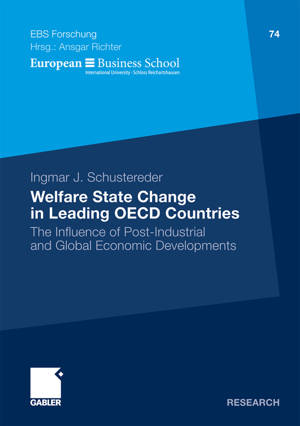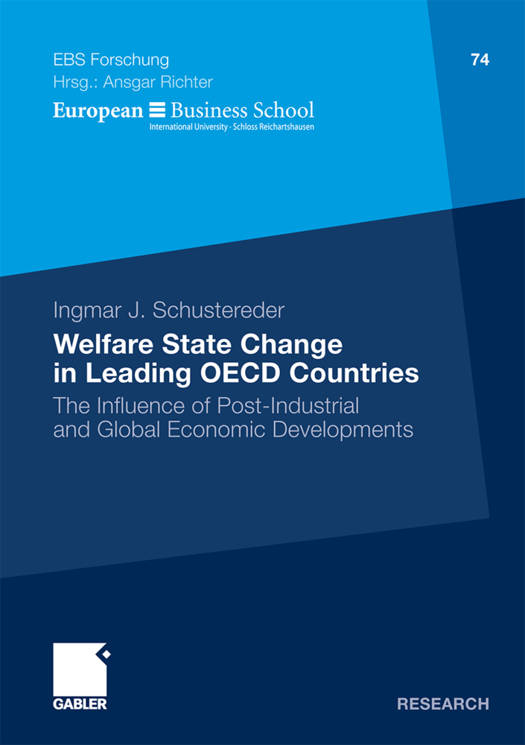
- Retrait gratuit dans votre magasin Club
- 7.000.000 titres dans notre catalogue
- Payer en toute sécurité
- Toujours un magasin près de chez vous
- Retrait gratuit dans votre magasin Club
- 7.000.000 titres dans notre catalogue
- Payer en toute sécurité
- Toujours un magasin près de chez vous
Welfare State Change in Leading OECD Countries
The Influence of Post-Industrial and Global Economic Developments
Ingmar Schustereder
52,95 €
+ 105 points
Description
1. 1 Research Scope Ever since the introduction of social insurance legislation beginning in the last th decades of the 19 century, social scientists have been interested in analyzing the causal forces behind the development of the modern welfare state. Precisely, for most of the period the academic debate has hereby mainly centered on the following qu- tions: Why was the welfare state founded in the first place? And which factors have 1 contributed to its rapid expansion in the aftermath of World War Two (WWII)? With the advanced capitalist welfare states beginning to face increasing ch- lenges from the mid-1970s onwards, academic research has recently shifted from providing explanations on the rise of the welfare state to understanding processes of welfare state adaptation. In general, advanced capitalist welfare states confront today two types of challenges: on the one hand, pressures from post-industrial devel- ments, and on the other hand, pressures from global economic forces (see Buti, Franco, and Pench, 1998, pp. 17-26). Following Pierson (2001a), the most severe "post-industrial pressures" (p. 80) involve ongoing processes of deindustrialization, population ageing, changing household structures, and welfare state maturation (pp. 82-83). Apart from these domestic challenges, advanced capitalist welfare states have recently also been affected by developments occurring in the global sphere. While processes of international economic integration had already resumed in the imme- ate aftermath of WWII, they have significantly intensified during the last four decades.
Spécifications
Parties prenantes
- Auteur(s) :
- Editeur:
Contenu
- Nombre de pages :
- 222
- Langue:
- Anglais
- Collection :
- Tome:
- n° 74
Caractéristiques
- EAN:
- 9783834919014
- Date de parution :
- 26-03-10
- Format:
- Livre broché
- Format numérique:
- Trade paperback (VS)
- Dimensions :
- 148 mm x 210 mm
- Poids :
- 294 g







